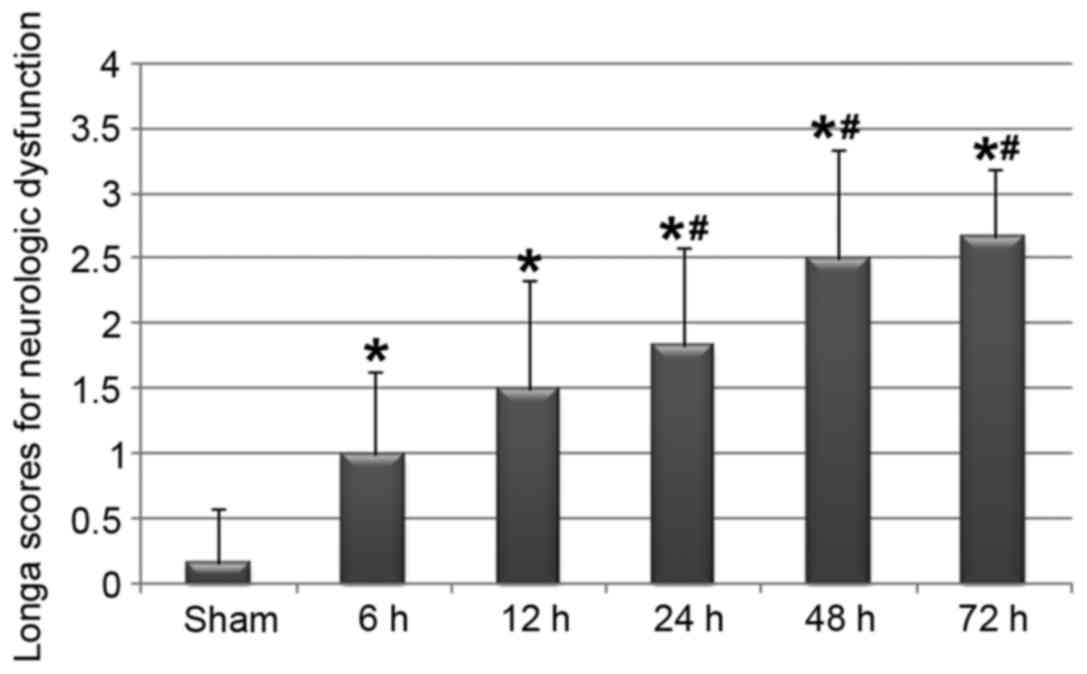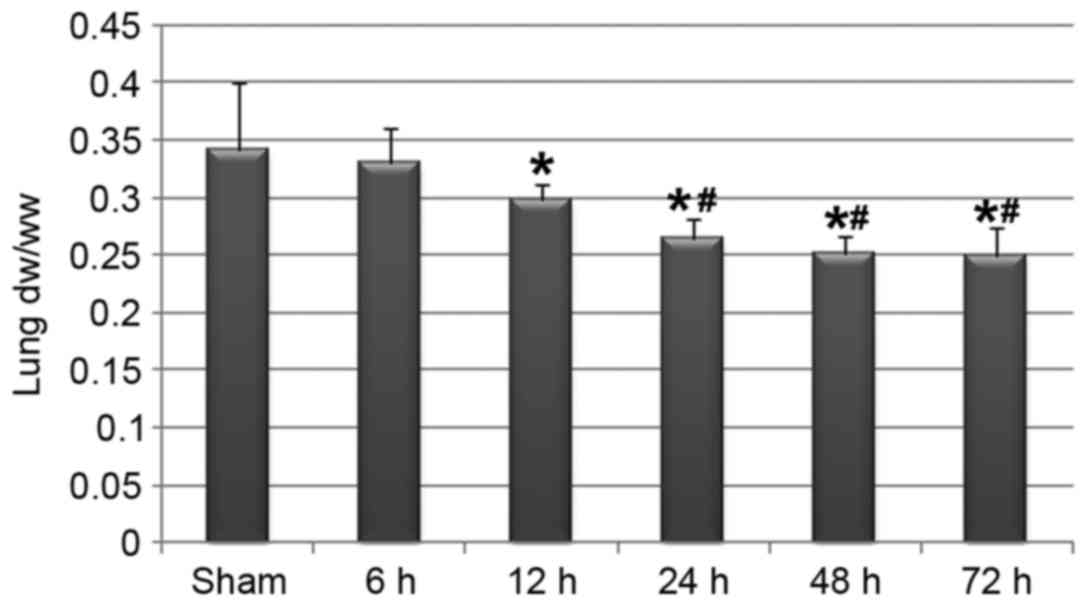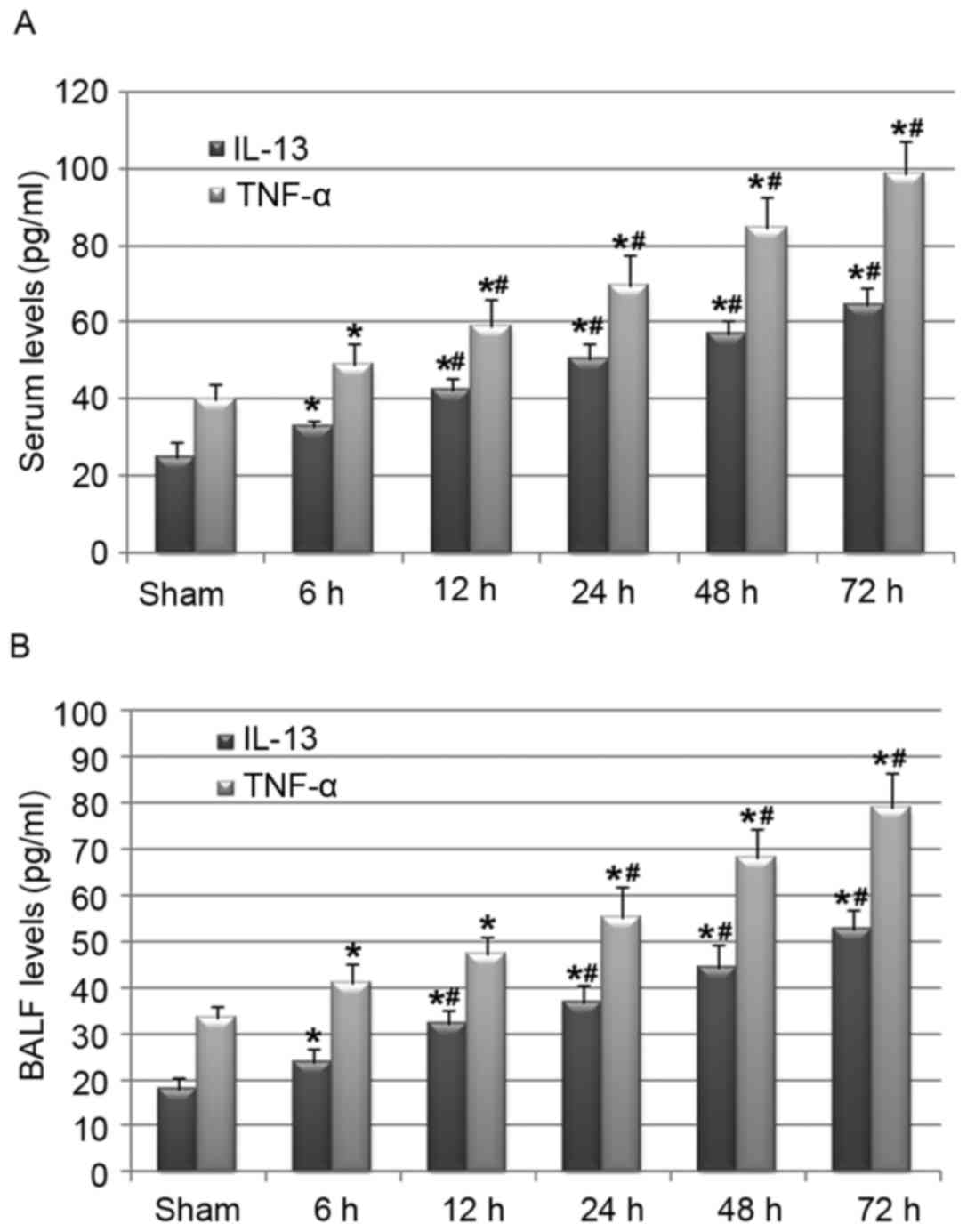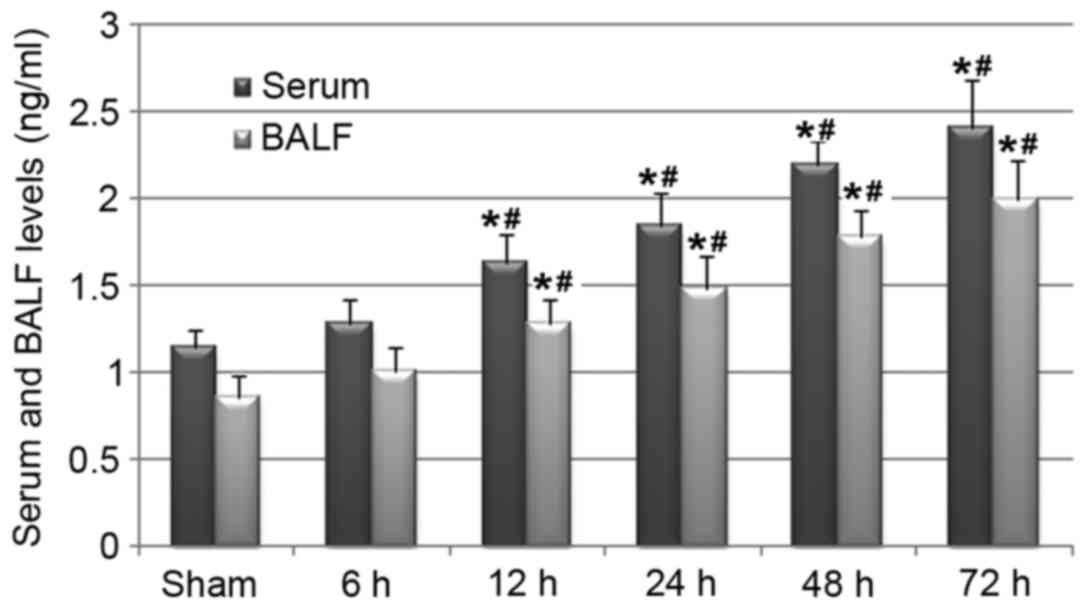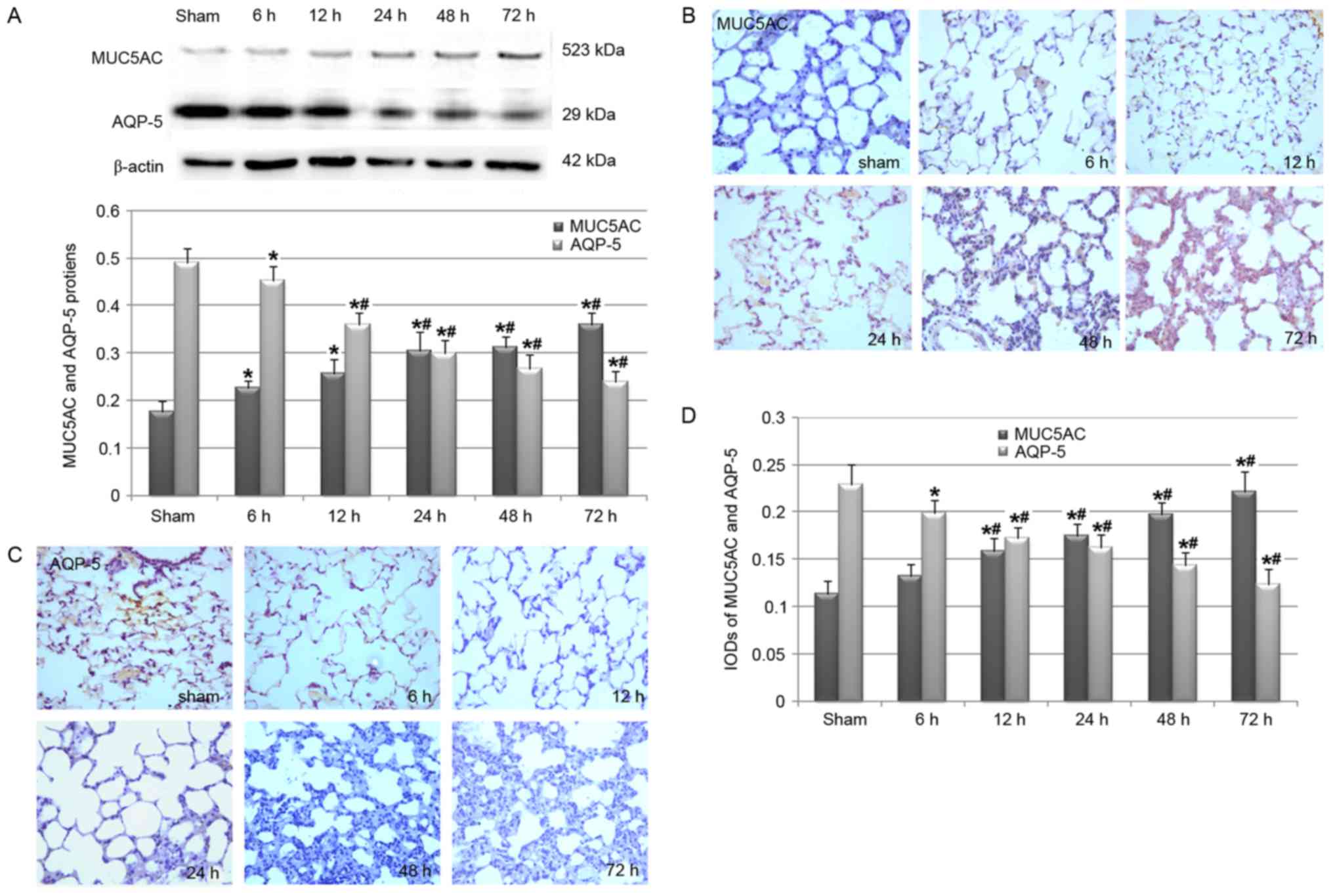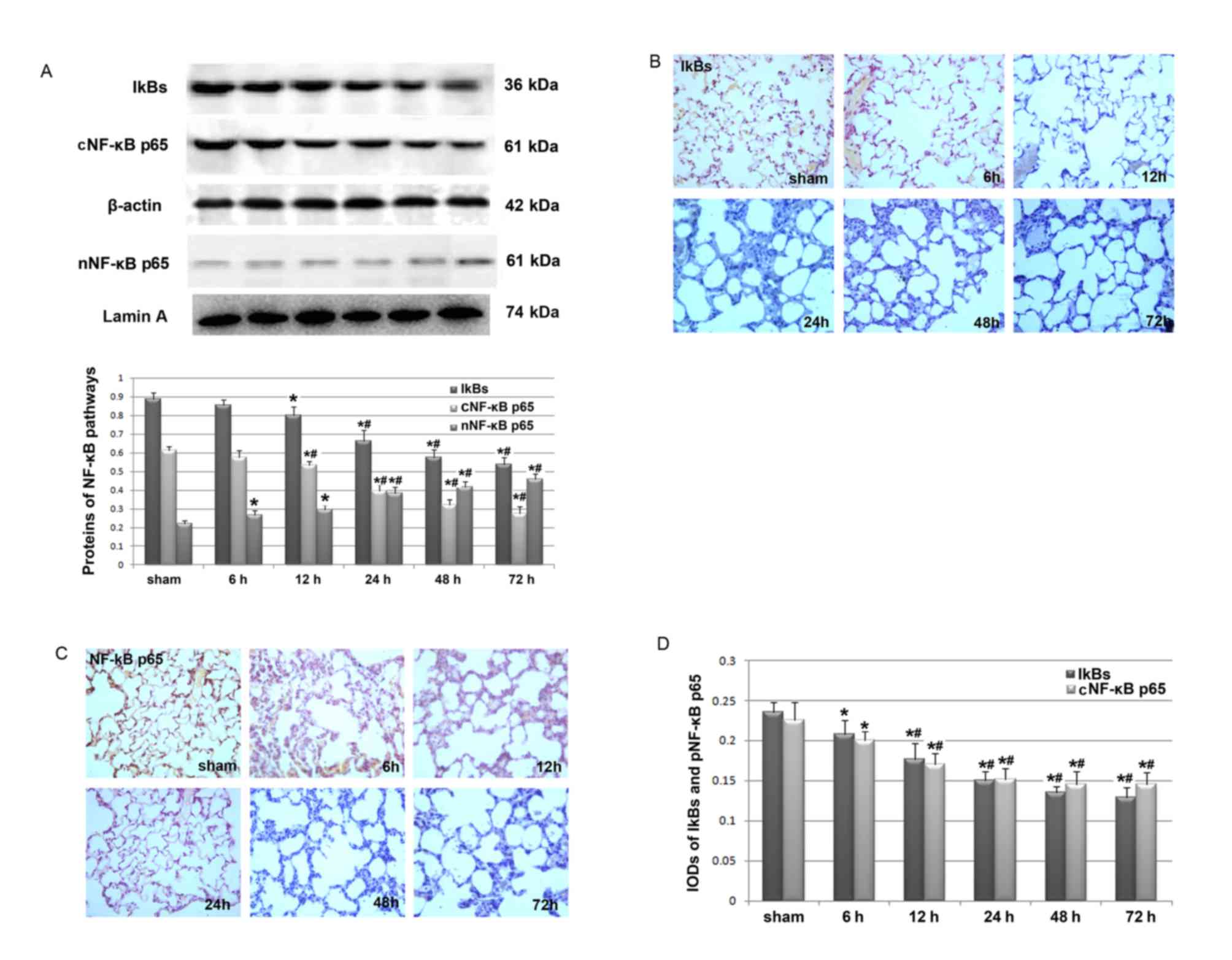|
1
|
Zhao JN, Liu Y and Li HC:
Aspiration-related acute respiratory distress syndrome in acute
stroke patient. PLoS One. 10:e01186822015. View Article : Google Scholar : PubMed/NCBI
|
|
2
|
Maeshima S, Osawa A, Hayashi T and
Tanahashi N: Elderly age, bilateral lesions, and severe
neurological deficit are correlated with stroke-associated
pneumonia. J Stroke Cerebrovasc Dis. 23:484–489. 2014. View Article : Google Scholar : PubMed/NCBI
|
|
3
|
Hilker R, Poetter C, Findeisen N, Sobesky
J, Jacobs A, Neveling M and Heiss WD: Nosocomial pneumonia after
acute stroke: Implications for neurological intensive care
medicine. Stroke. 34:975–981. 2003. View Article : Google Scholar : PubMed/NCBI
|
|
4
|
Hannawi Y, Hannawi B, Rao CP, Suarez JI
and Bershad EM: Stroke-associated pneumonia: Major advances and
obstacles. Cerebrovasc Dis. 35:430–443. 2013. View Article : Google Scholar : PubMed/NCBI
|
|
5
|
Smith CJ, Kishore AK, Vail A, Chamorro A,
Garau J, Hopkins SJ, Di Napoli M, Kalra L, Langhorne P, Montaner J,
et al: Diagnosis of stroke-associated pneumonia: Recommendations
from the pneumonia in stroke consensus group. Stroke. 46:2335–2340.
2015. View Article : Google Scholar : PubMed/NCBI
|
|
6
|
Martin C, Frija-Masson J and Burgel PR:
Targeting mucus hypersecretion: New therapeutic opportunities for
COPD? Drugs. 74:1073–1089. 2014. View Article : Google Scholar : PubMed/NCBI
|
|
7
|
Bergeron C, Tulic MK and Hamid Q: Airway
remodelling in asthma: From benchside to clinical practice. Can
Respir J. 17:e85–93. 2010. View Article : Google Scholar : PubMed/NCBI
|
|
8
|
Aikawa T, Shimura S, Sasaki H, Ebina M and
Takishima T: Marked goblet cell hyperplasia with mucus accumulation
in the airways of patients who died of severe acute asthma attack.
Chest. 101:916–921. 1992. View Article : Google Scholar : PubMed/NCBI
|
|
9
|
Jenkins HA, Cool C, Szefler SJ, Covar R,
Brugman S, Gelfand EW and Spahn JD: Histopathology of severe
childhood asthma: A case series. Chest. 124:32–41. 2003. View Article : Google Scholar : PubMed/NCBI
|
|
10
|
Turner J and Jones CE: Regulation of mucin
expression in respiratory diseases. Biochem Soc Trans. 37:877–881.
2009. View Article : Google Scholar : PubMed/NCBI
|
|
11
|
Whittaker L, Niu N, Temann UA, Stoddard A,
Flavell RA, Ray A, Homer RJ and Cohn L: Interleukin-13 mediates a
fundamental pathway for airway epithelial mucus induced by CD4 T
cells and interleukin-9. Am J Respir Cell Mol Biol. 27:593–602.
2002. View Article : Google Scholar : PubMed/NCBI
|
|
12
|
Chen M, Lv Z, Zhang W, Huang L, Lin X, Shi
J, Zhang W, Liang R and Jiang S: Triptolide suppresses airway
goblet cell hyperplasia and Muc5ac expression via NF-κB in a murine
model of asthma. Mol Immunol. 64:99–105. 2015. View Article : Google Scholar : PubMed/NCBI
|
|
13
|
Kang JH, Hwang SM and Chung IY: S100A8,
S100A9 and S100A12 activate airway epithelial cells to produce
MUC5AC via extracellular signal-regulated kinase and nuclear
factor-κB pathways. Immunology. 144:79–90. 2015. View Article : Google Scholar : PubMed/NCBI
|
|
14
|
Ahmad M, Dar NJ, Bhat ZS, Hussain A, Shah
A, Liu H and Graham SH: Inflammation in ischemic stroke:
Mechanisms, consequences and possible drug targets. CNS Neurol
Disord Drug Targets. 13:1378–1396. 2014. View Article : Google Scholar : PubMed/NCBI
|
|
15
|
Tuttolomondo A, Pecoraro R, Di Raimondo D,
Di Sciacca R, Canino B, Arnao V, Buttà C, Corte V Della, Maida C,
Licata G and Pinto A: Immune-inflammatory markers and arterial
stiffness indexes in subjects with acute ischemic stroke with and
without metabolic syndrome. Diabetol Metab Syndr. 6:282014.
View Article : Google Scholar : PubMed/NCBI
|
|
16
|
Tuttolomondo A, Pecoraro R, Casuccio A, Di
Raimondo D, Buttà C, Clemente G, Corte V Della, Guggino G, Arnao V,
Maida C, et al: Peripheral frequency of CD4+ CD28-cells
in acute ischemic stroke: Relationship with stroke subtype and
severity markers. Medicine (Baltimore). 94:e8132015. View Article : Google Scholar : PubMed/NCBI
|
|
17
|
Tuttolomondo A, Pedone C, Pinto A, Di
Raimondo D, Fernandez P, Di Sciacca R and Licata G: Gruppo Italiano
di Farmacoepidemiologia dell'Anziano (GIFA) researchers: Predictors
of outcome in acute ischemic cerebrovascular syndromes: The GIFA
study. Int J Cardiol Cardiol Cardiol. 125:391–396. 2008. View Article : Google Scholar
|
|
18
|
Tuttolomondo A, Pecoraro R and Pinto A:
Studies of selective TNF inhibitors in the treatment of brain
injury from stroke and trauma: A review of the evidence to date.
Drug Des Devel Ther. 8:2221–2238. 2014. View Article : Google Scholar : PubMed/NCBI
|
|
19
|
Committee for the Update of the Guide for
the Care and Use of Laboratory Animals: Guide for the care and use
of laboratory animals. 8th. https://grants.nih.gov/grants/olaw/Guide-for-the-Care-and-Use-of-Laboratory-Animals.pdf
|
|
20
|
Longa EZ, Weinstein PR, Carlson S and
Cummins R: Reversible middle cerebral artery occlusion without
craniectomy in rats. Stroke. 20:84–91. 1989. View Article : Google Scholar : PubMed/NCBI
|
|
21
|
Haqqani AS, Nesic M, Preston E, Baumann E,
Kelly J and Stanimirovic D: Characterization of vascular protein
expression patterns in cerebral ischemia/reperfusion using laser
capture microdissection and ICAT-nanoLC-MS/MS. FASEB J.
19:1809–1821. 2005. View Article : Google Scholar : PubMed/NCBI
|
|
22
|
Alagha K, Palot A, Sofalvi T, Pahus L,
Gouitaa M, Tummino C, Martinez S, Charpin D, Bourdin A and Chanez
P: Long-acting muscarinic receptor antagonists for the treatment of
chronic airway diseases. Ther Adv Chronic Dis. 5:85–98. 2014.
View Article : Google Scholar : PubMed/NCBI
|
|
23
|
Shen Y, Wang Y, Chen Z, Wang D, Wang X,
Jin M and Bai C: Role of aquaporin 5 in antigen-induced airway
inflammation and mucous hyperproduction in mice. J Cell Mol Med.
15:1355–1363. 2011. View Article : Google Scholar : PubMed/NCBI
|
|
24
|
Llinas RH: Ischemic stroke and ICU care.
Semin Neurol. 28:645–656. 2008. View Article : Google Scholar : PubMed/NCBI
|
|
25
|
Tuttolomondo A, Di Sciacca R, Di Raimondo
D, Renda C, Pinto A and Licata G: Inflammation as a therapeutic
target in acute ischemic stroke treatment. Curr Top Med Chem.
9:1240–1260. 2009. View Article : Google Scholar : PubMed/NCBI
|
|
26
|
Angelis N, Porpodis K, Zarogoulidis P,
Spyratos D, Kioumis I, Papaiwannou A, Pitsiou G, Tsakiridis K,
Mpakas A, Arikas S, et al: Airway inflammation in chronic
obstructive pulmonary disease. J Thorac Dis. 6 Suppl 1:S167–S172.
2014.PubMed/NCBI
|
|
27
|
McGovern AE and Mazzone SB: Neural
regulation of inflammation in the airways and lungs. Auton
Neurosci. 182:95–101. 2014. View Article : Google Scholar : PubMed/NCBI
|
|
28
|
Mitchell J, Dimov V and Townley RG: IL-13
and the IL-13 receptor as therapeutic targets for asthma and
allergic disease. Curr Opin Investig Drugs. 11:527–534.
2010.PubMed/NCBI
|
|
29
|
Rayees S, Malik F, Bukhari SI and Singh G:
Linking GATA-3 and interleukin-13: Implications in asthma. Inflamm
Res. 63:255–265. 2014. View Article : Google Scholar : PubMed/NCBI
|
|
30
|
Lin J, Jiang Y, Li L, Liu Y, Tang H and
Jiang D: TMEM16A mediates the hypersecretion of mucus induced by
Interleukin-13. Exp Cell Res. 334:260–269. 2015. View Article : Google Scholar : PubMed/NCBI
|
|
31
|
Ma Y, Halayko AJ, Basu S, Guan Q, Weiss
CR, Ma AG, HayGlass KT, Becker AB, Warrington RJ and Peng Z:
Sustained suppression of IL-13 by a vaccine attenuates airway
inflammation and remodeling in mice. Am J Respir Cell Mol Biol.
48:540–549. 2013. View Article : Google Scholar : PubMed/NCBI
|
|
32
|
Janssen-Heininger YM, Poynter ME, Aesif
SW, Pantano C, Ather JL, Reynaert NL, Ckless K, Anathy V, Van Der
Velden J, Irvin CG and van der Vliet A: Nuclear factor kappaB,
airway epithelium, and asthma: Avenues for redox control. Proc Am
Thorac Soc. 6:249–255. 2009; View Article : Google Scholar : PubMed/NCBI
|
|
33
|
Mortaz E, Masjedi MR, Allameh A and Adcock
IM: Inflammasome signaling in pathogenesis of lung diseases. Curr
Pharm Des. 18:2320–2328. 2012. View Article : Google Scholar : PubMed/NCBI
|















